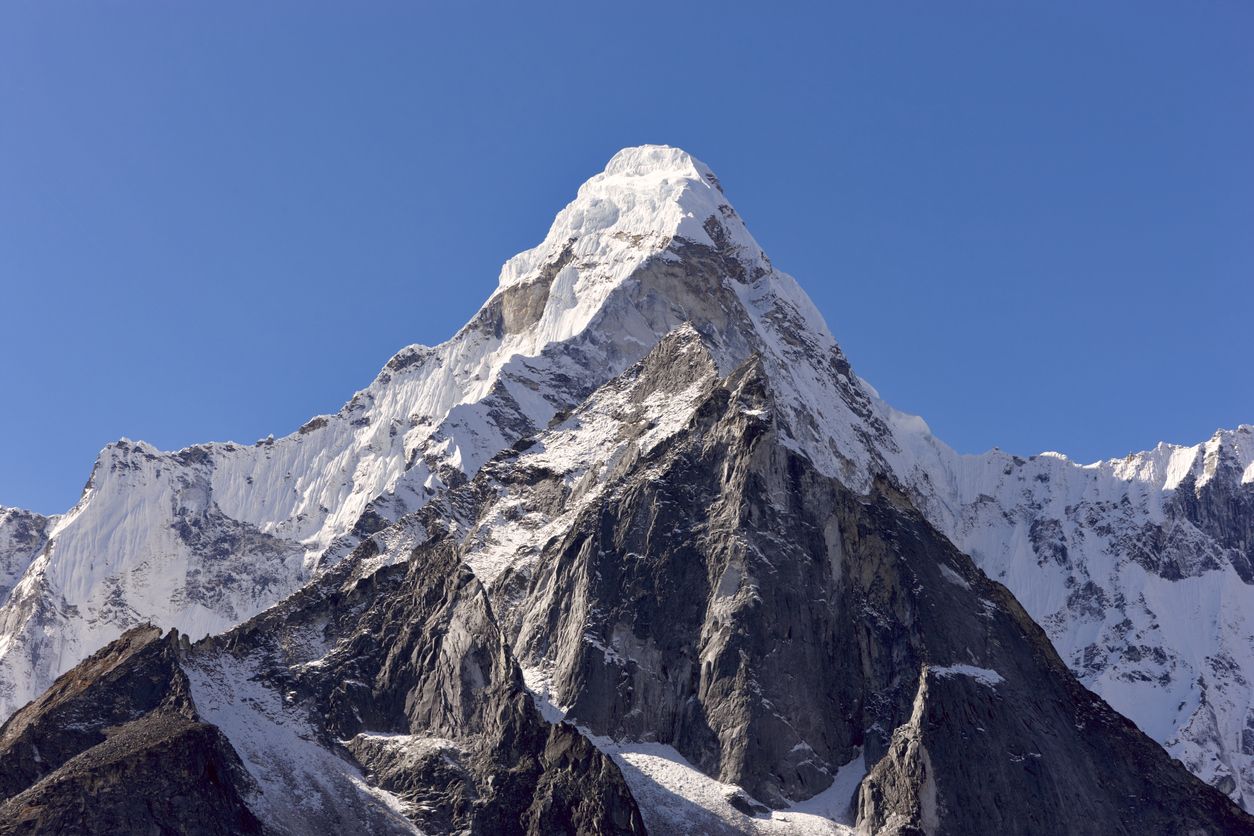What is the highest mountain in the world? It's Mount Everest, sitting pretty at 8,848m in the Himalayas of Nepal. It's likely you already knew that. After all, ask 100 people in the world to name a mountain, and most will say Mount Everest. A lot of people also know that the second highest mountain in the world is K2, on the China-Pakistan border, but far fewer know that the third highest mountain in the world is called Kangchenjunga. Or how to spell that. It’s not quite as simple as ‘K2’, that’s for sure. So, how many of the highest mountains in the world do you really know?
Everest tends to hog all the fame, but actually, the entire continent of Asia is full of huge mountains. The top 100 tallest mountains in the world are all in Asia. None of the seven summits - the highest mountains on each continent - are on this list except Everest. It's actually quite rare to find someone who knows about the sixth, seventh or eighth highest mountains in the world.
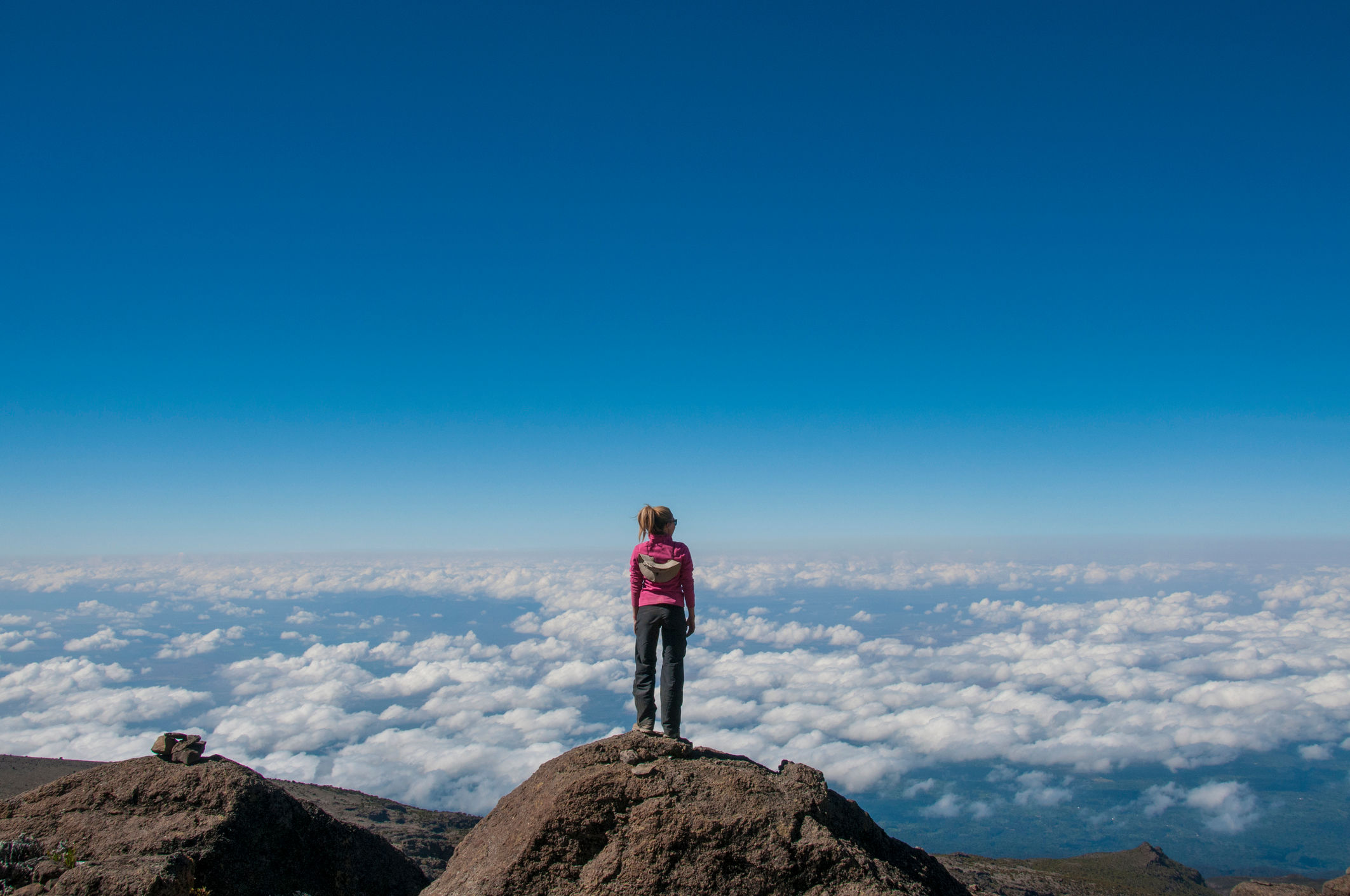
So let’s do this. Let’s help you learn the top 10 highest mountains in the world. Let’s help you cheat in this pub quiz you’re probably competing in right now, with your phone under the table, connected to the dodgy Wi-Fi. Don’t feel bad. Everyone’s doing it. That team with the dog were definitely cheating in the music round. These are the 10 tallest mountains in the world - the planet's top ten highest mountains.
The World's Highest Mountains, Mapped
This is where you'll find the 10 highest mountains in the world. Read on to find out their heights and other top facts.
1. Mount Everest
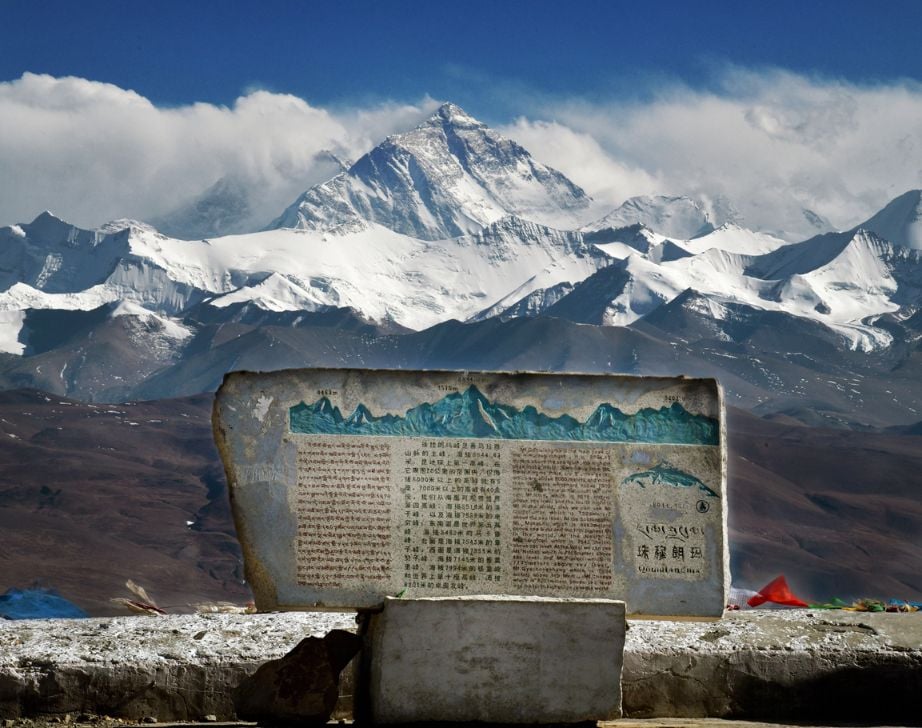
- Height: 8,848m
- Location: Himalayas, Nepal/Tibet Autonomous Region, China
First climbed by Sir Edmund Hillary and Tenzing Norgay in 1953, Mount Everest is, of course, the highest mountain in the world. Everest has come under a lot of scrutiny recently. Photographs showing enormous queues near the summit have opened a huge debate about overcrowding on Everest.
One thing’s for sure though, the inherent draw of Mount Everest is not going to go away any time soon. Mankind is drawn to the mountain like moths to a flame. As well as those looking to take the route from Everest Base Camp to the summit, trekking to Everest Base Camp itself is also hugely popular. In fact, it’s become one of the world’s most famous multi-day treks.
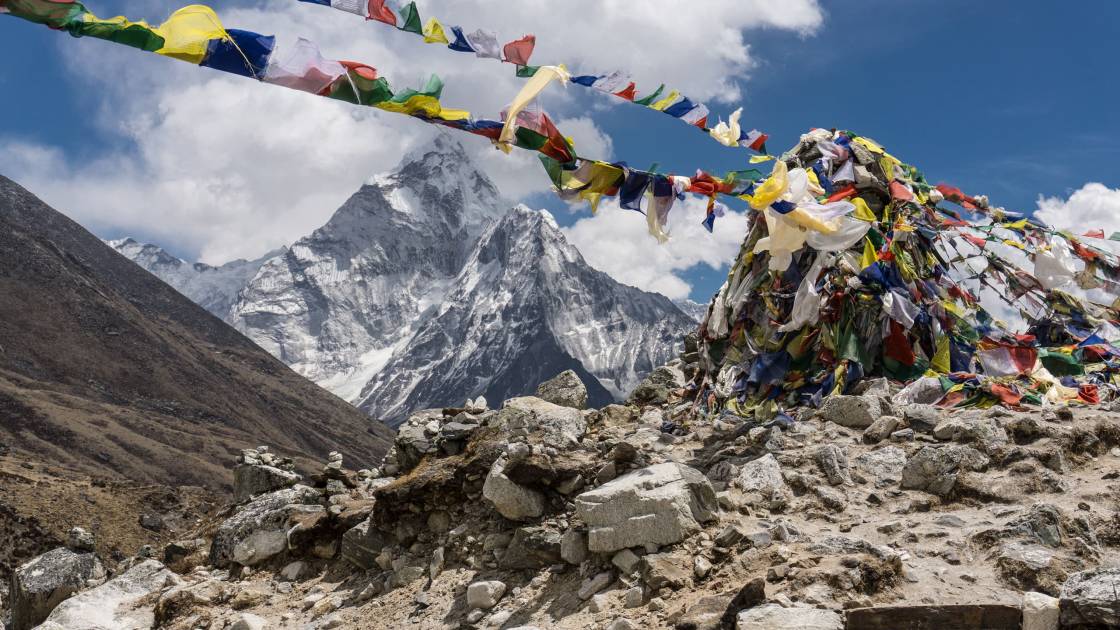
P.S. If you are currently cheating at a pub quiz on the question “what is the highest mountain in the world?”, then we would suggest that it’s relatively unlikely you’re going to win the quiz. Unless you cheat a bunch more.
Fancy learning more? Read Into Thin Air by Jon Krakauer or Above the Clouds by Kilian Jornet
2. K2
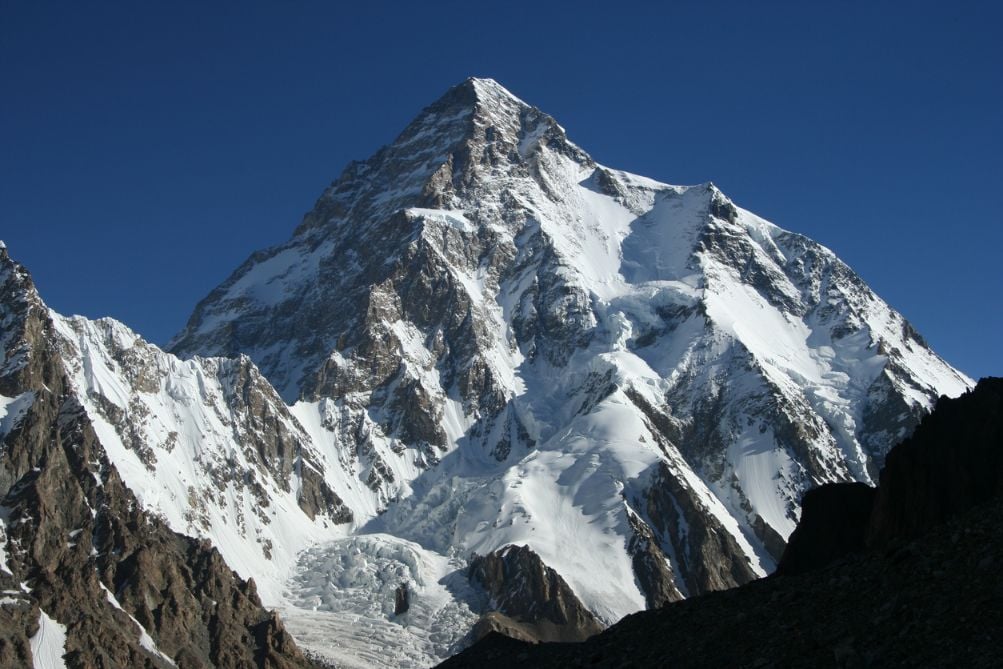
- Height: 8,611m
- Location: Pakistan/China
The second highest mountain in the world is K2. The mountain took its name from the notation used by the Great Trigonometrical Survey of British India. At the time, there wasn’t an apparent local name for the mountain, and so it stuck. K2 is also nicknamed the ‘Savage Mountain’, which is cool in a slightly Point Break, over-the-top extreme kind of way. It is fitting, though, too.

The mountain is typically considered one of the toughest mountains in the world to climb, notoriously harder than Mount Everest, despite being the second tallest mountain in the world. K2 actually has the second-highest fatality rate per summit attempt of all mountains over 8000m, with around 300 successful summits and 77 deaths. The highest fatality rate is that of the tenth highest mountain in the world (spoiler alert), Annapurna I in Nepal. Unlike Annapurna though, K2 had never been summited in winter - until it happened this winter.
Fancy learning more? Read No Way Down: Life and Death on K2 by Graham Bowley
3. Kangchenjunga
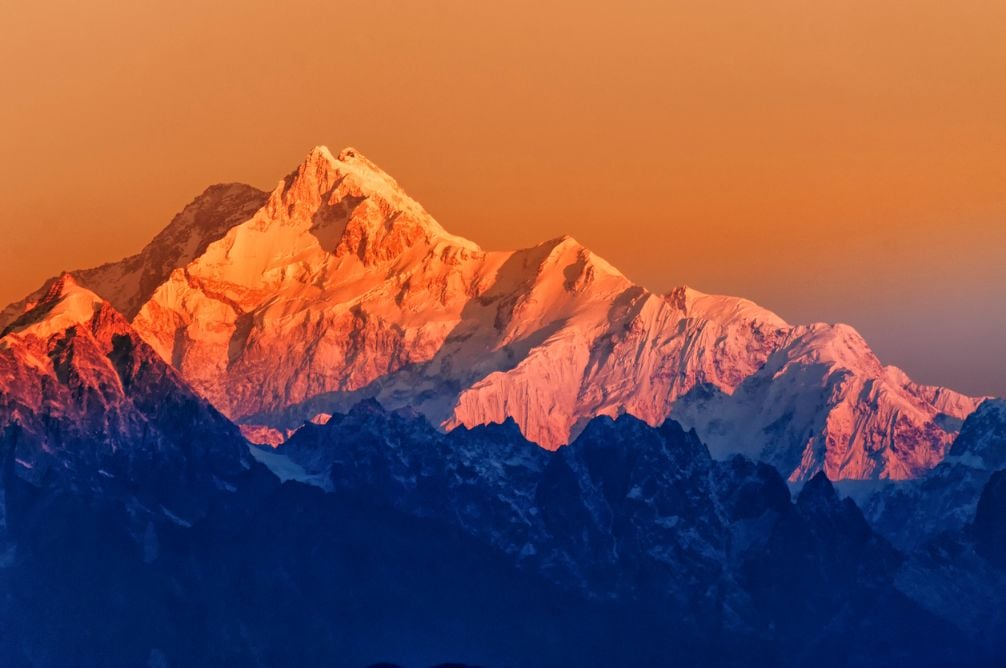
- Height: 8,586m
- Location: Himalayas, Nepal/India
So you knew Mount Everest was the highest mountain in the world. You even knew K2 was the second highest. But we’re betting if you asked most people what Kangchenjunga was, they’d guess it was some kind of street food. It is not. Kangchenjunga is the third highest mountain in the world. It can be found between Nepal and Sikkim in India, with three of the peaks on the border and the other two in the Taplejung District of Nepal.
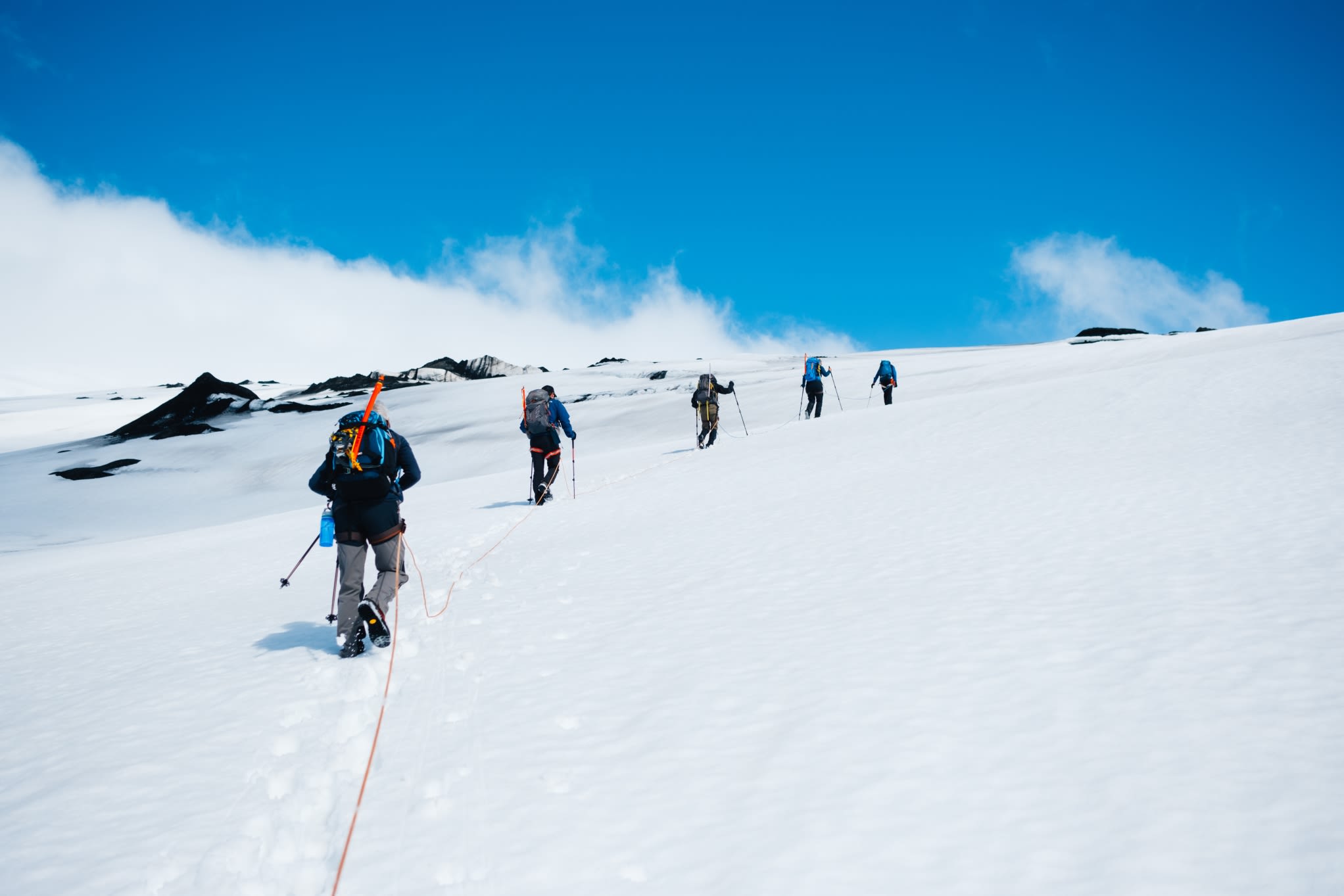
This makes Kangchenjunga the highest peak in India. The mountain was actually thought to be the highest mountain in the world until 1852. This wasn’t because people didn’t know about Mount Everest, but because they had done their calculations wrong. After further homework by the Great Trigonometrical Survey of India, it was discovered that actually Kangchenjunga was the third highest mountain in the world, and children around the world breathed a sigh of relief that they would be primarily learning about Mount Everest instead, a mountain which is significantly easier to both say and spell.
Fancy learning more? Read The Last Great Mountain: The First Ascent of Kangchenjunga by Michael Conefrey
4. Lhotse
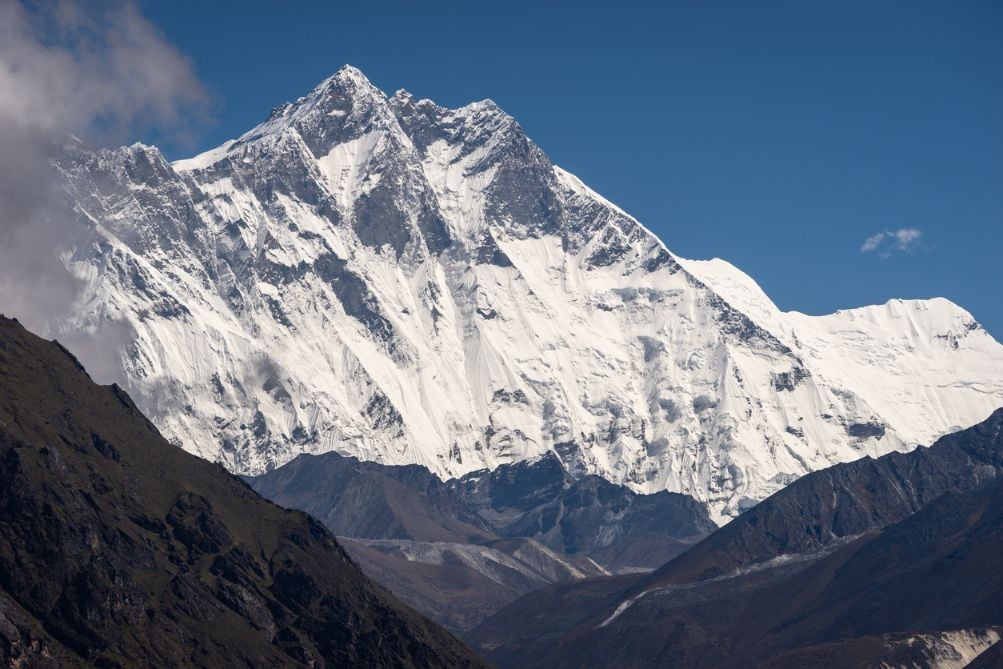
- Height: 8,516m
- Location: Himalayas, Nepal/Tibet Autonomous Region, China
Lhotse is one of the more famous mountains on any list of the top 10 highest mountains in the world, largely because of its proximity to Mount Everest. The route up Lhotse is the same as that up Mount Everest from Everest Base Camp until you pass Camp 3 and then depart to the Reiss couloir from the Lhotse Face, from where the peak of Lhotse is reached.
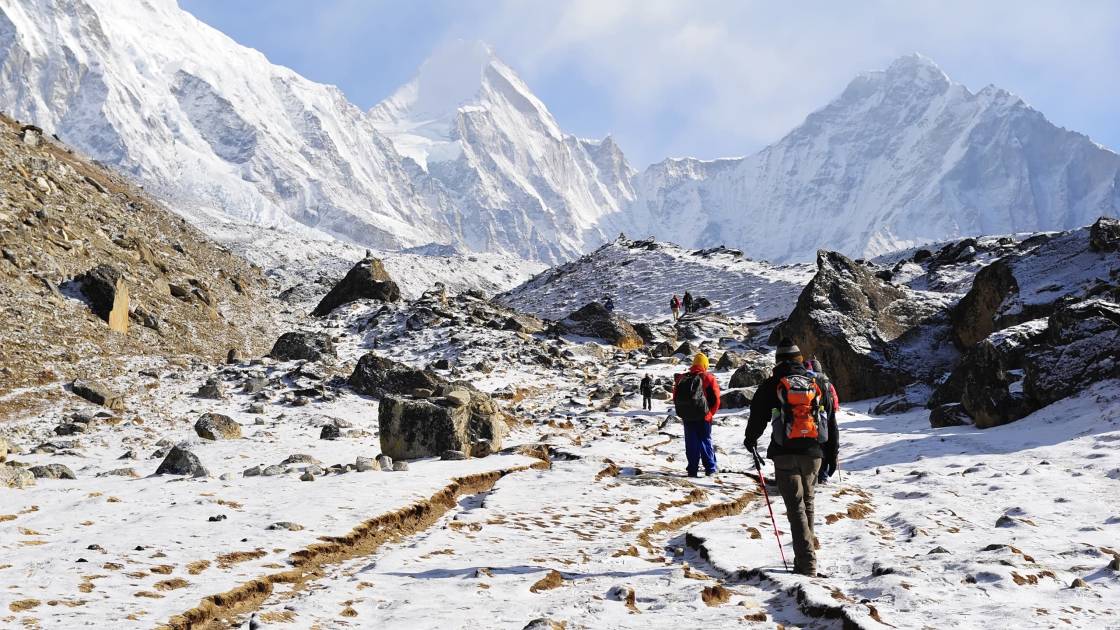
Lhotse is a little like the neglected younger sibling of Mount Everest. Everest gets all the attention while Lhotse, though often considered more visually attractive, is significantly less busy. While the main summit of Lhotse was first climbed in 1956, the Lhotse Middle actually remained the highest unclimbed, named point on Earth for decades. It was eventually first scaled in 2011 by a Russian expedition.
Fancy learning more? Read Art of Freedom: The Life and Climbs of Voytek Kurtyka by Bernadette McDonald
5. Makalu
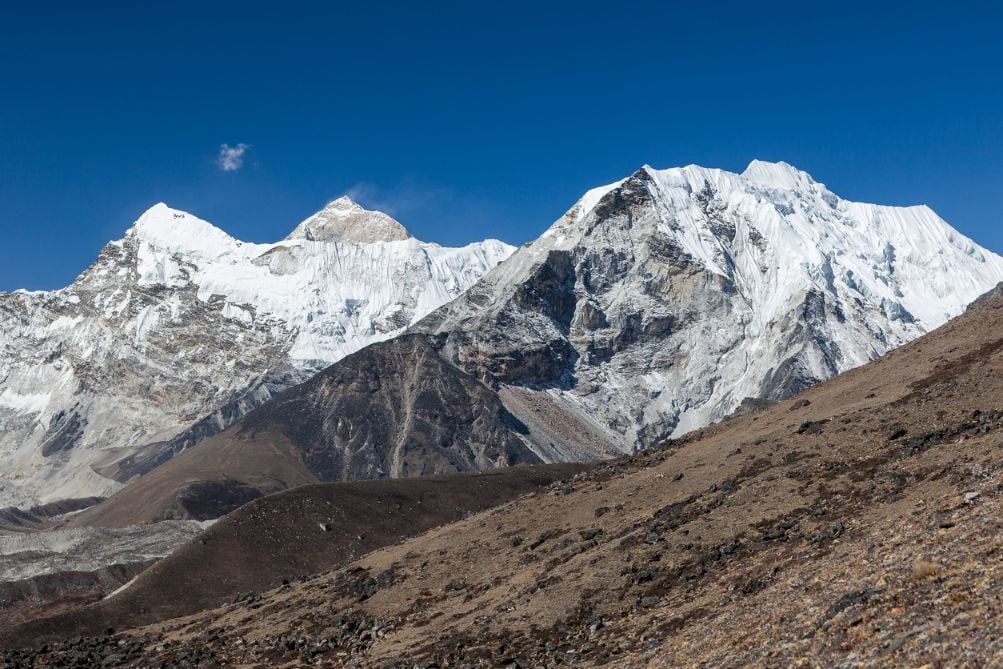
- Height: 8,485m
- Location: Himalayas, Nepal/Tibet Autonomous Region, China
Makalu is the third of the four 8000m-high mountains in the Everest Massif in Nepal. It was first summited by a French expedition led by Jean Franco in 1955. Their ascent was most notable for the fact that a full ten members of the expedition team summited the mountain on the trip. In those days, it was normally only one or two climbers from each team who reached the top of the mountain on an expedition, so this was a huge deal at the time, and generally, it’s just quite nice, isn’t it? The first two summited on 15 May 1955, then four more went up the next day, then four more went up the day after that. Just very wholesome mountain climbing, really.
Fancy learning more? Read No Place to Fall: Superalpinism in the High Himalaya by Victor Saunders
6. Cho Oyu
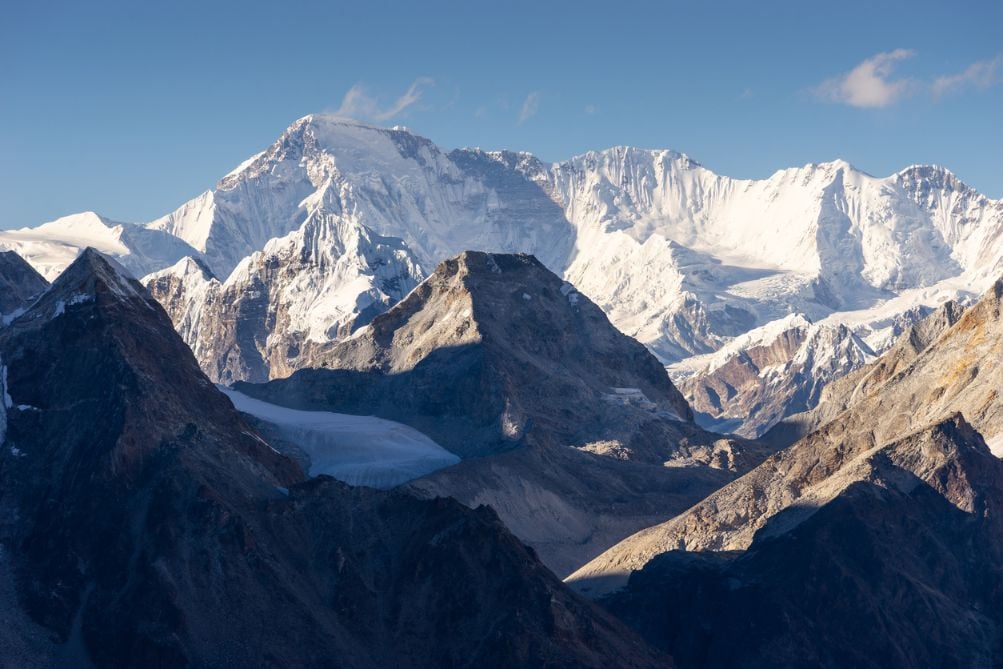
- Height: 8,188m
- Location: Himalayas, Nepal/Tibet Autonomous Region, China
The fourth and final member of the Everest region’s 8000m club is Cho Oyu. The sixth highest mountain in the world at 8188m, Cho Oyu is considered the easiest of the 8000m mountains to climb due to the gentler slopes of the ascent. It’s also just a few kilometres away from the Nangpa La pass, a major trading route between the Tibetan and Khumbu Sherpas. If the four mountains in the Everest region over 8000m were in a boyband, Cho Oyu would be the laid back, easy-going back-up singer. Not the most flamboyant one, but probably the most relatable.
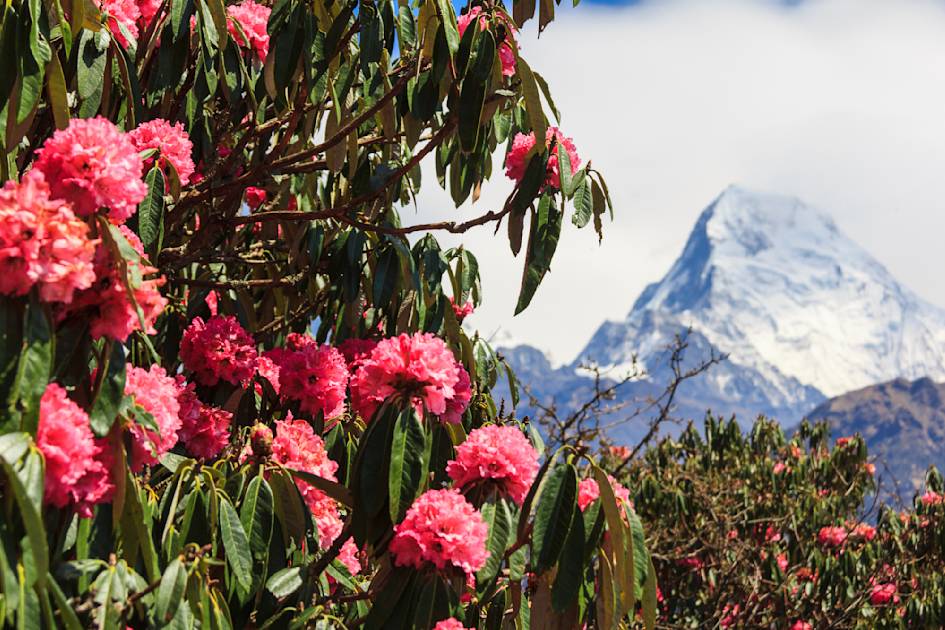
The mountain of the people. If you’re wondering, Lhotse would be the best vocalist, always getting its limelight stolen by Everest’s over-the-top hairstyles, and Makalu would be somewhere in the background just trying to make sure everyone got along. Weird analogy. We know. Let’s move swiftly on.
Fancy learning more? Read A Fatal Obsession: The Women of Cho Oyu by Stephen Harper
7. Dhaulagiri
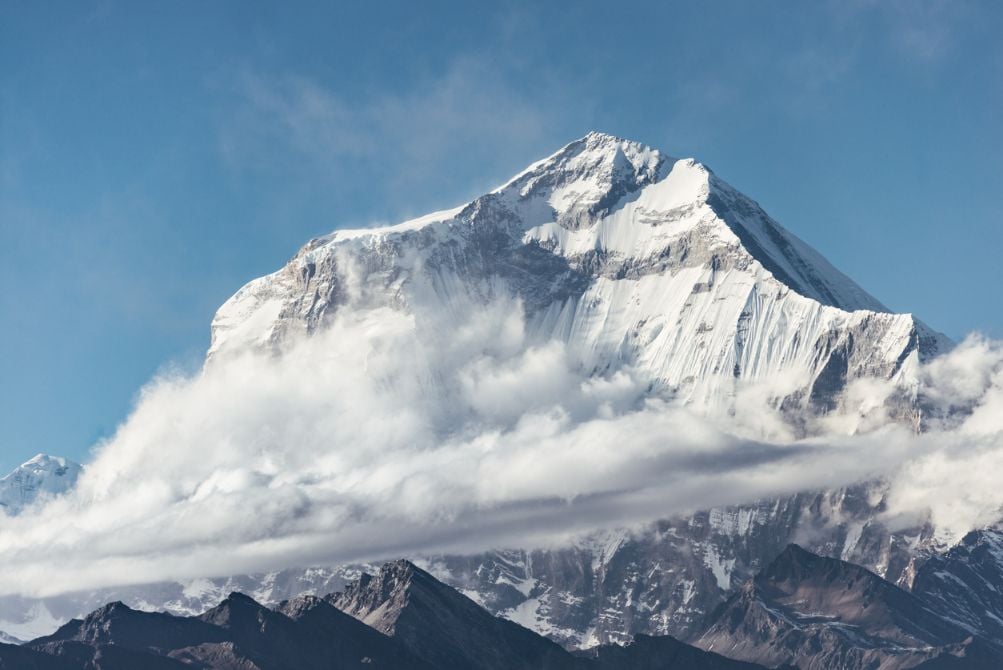
- Height: 8,167m
- Location: Nepal
The Dhaulagiri in Nepal is the seventh highest mountain in the world at 8167m, and one of the most aesthetically stunning mountains of the lot. The Dhaulagiri was first climbed on 13 May 1960 but is perhaps best known for its visibility on the popular Annapurna Circuit, with Annapurna I just 34km away and the Dhaulagiri a regular feature on the skyline while trekking Annapurna.
The mountains are separated by the world’s deepest gorge – the Kaligandaki Gorge – so it’s not a part of the world that’s particularly struggling for scenery.
Fancy learning more? Read Winter 8000: Climbing the World’s Highest Mountains in The Coldest Season by Bernadette McDonald
8. Manaslu
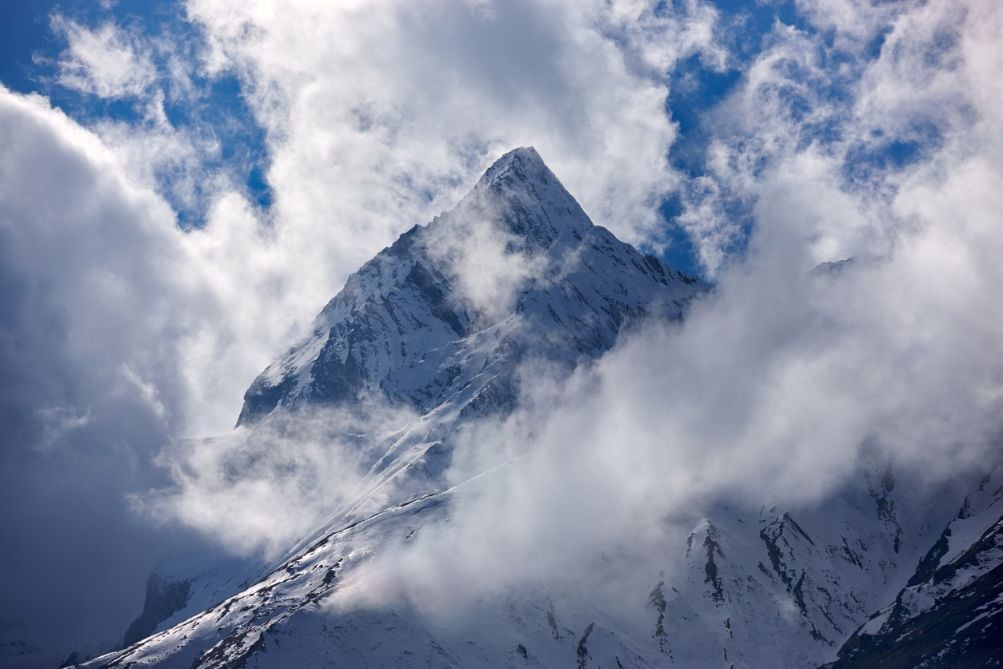
- Height: 8,163m
- Location: Nepal
Manaslu is the eighth highest mountain in the world, the name actually comes from the Sanskrit word ‘manasa’, which means “intellect” or “soul”.
Manaslu was first scaled by Toshio Imanishi and Gyalzen Norbu, who were part of a Japanese expedition which reached the top of the mountain on 9 May 1956. Their ascent was controversial. Locals of the area had prevented a Japanese team from reaching the top in 1954, believing that previous attempts had displeased the Gods and caused avalanches that destroyed a monastery in the area, killing 18 people. The Japanese made a substantial donation to rebuild the monastery, but this didn’t restore goodwill towards the expeditions and as a result, the second ascent of Manaslu didn’t take place until 1971, when another Japanese team completed the ascent.
Fancy learning more? Read Beyond Possible: One Soldier, Fourteen Peaks by Nimsdai Purja
9. Nanga Parbat
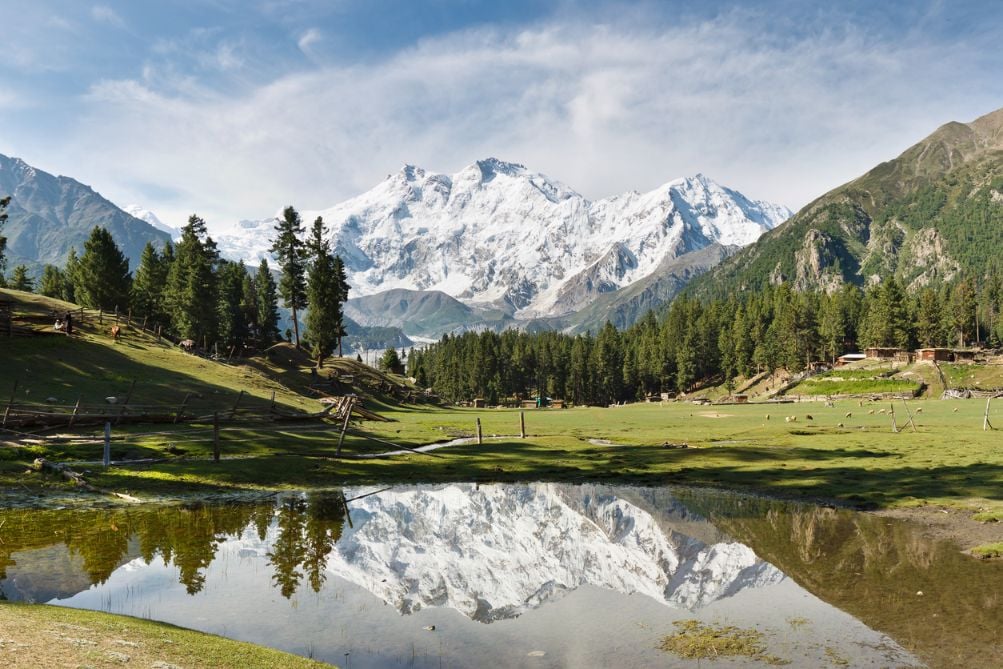
- Height: 8,126m
- Location: Pakistan
The ninth highest mountain in the world is Nanga Parbat, in the Diamer District of Pakistan’s Gilgit Baltistan region in the western Himalayas. Like many of the other mountains, the name comes from Sanskrit, with ‘nanga’ and ‘parvata’ meaning ‘naked mountain’. The Tibetan name for the mountain ‘Diamer’, meaning “huge mountain”, is maybe a bit more appropriate (if a little lacking in creativity). Nanga Parbat truly towers over the surrounding, low-lying valleys around it in every direction. The stunning Rupal Face on the mountain rises a full 4,600m above its base and is often called the highest mountain face in the world.
Fancy learning more? Read Nanga Parbat Pilgrimage: The Lonely Challenge by Herman Buhl
10. Annapurna I
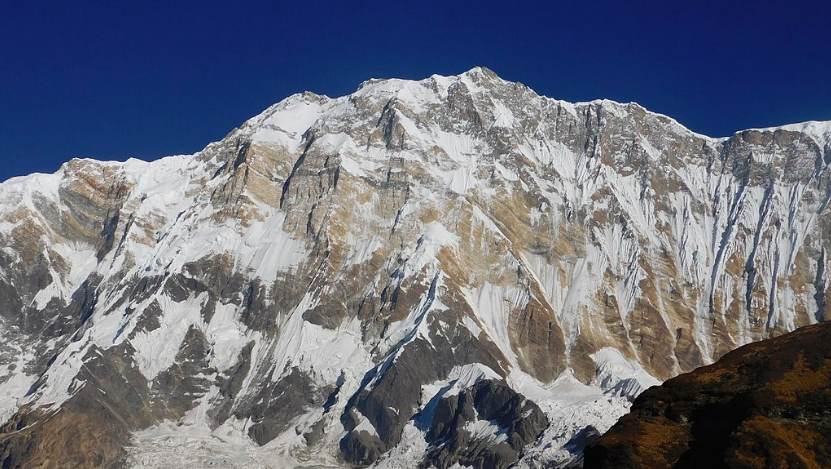
- Height: 8,091m
- Location: Nepal
Annapurna I in Nepal is the tenth highest mountain in the world, and one of the most famous mountains on this list courtesy of the fact that the trekking in Annapurna is truly world-renowned. Annapurna I may be only the tenth highest mountain in the world, but it actually has a higher fatality rate than any other mountain on this list, with 32% of attempts to reach the top of the mountain resulting in a fatality.
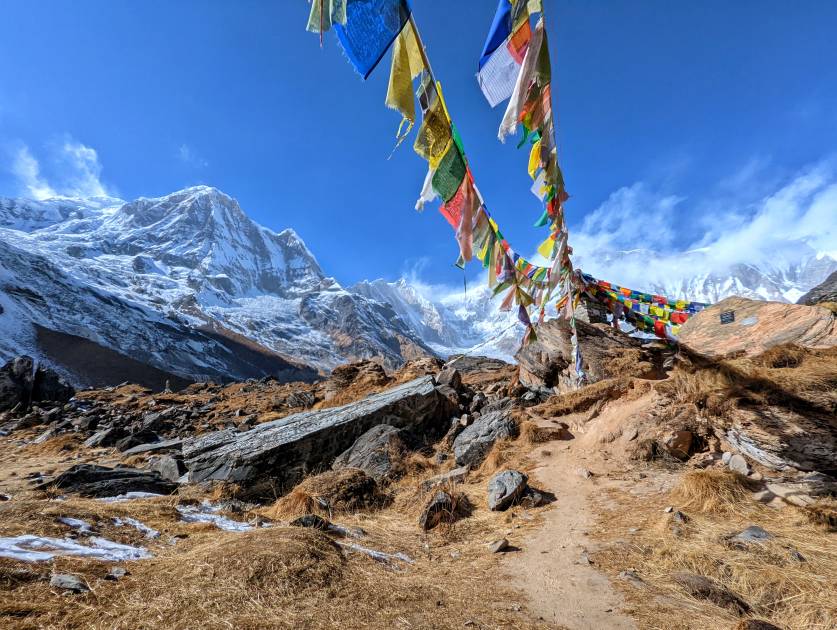
Far more popular than the summit attempt is the Annapurna Circuit trek, which circumnavigates Annapurna I and takes in views from the Dhaulagiri to the mountain passes of the Annapurna Massif. Treks to the Annapurna Sanctuary, the Base Camp for climbing to the peaks of Annapurna, are also increasingly popular.
And there you have it! Those are the 10 highest mountains in the world. The 10 highest summits. An honourable mention must go out to the amazingly named Gasherbrum I (8080m) on the Pakistan–Chinese border, though. It’s the 11th highest mountain in the world and as such misses out on a place in this list, and on the fame and fortune that comes with it, by a mere 19 metres.
Fancy learning more? Read Annapurna: A Woman’s Place by Arlene Blum
Read More
- Browse the Trekking Adventures in Nepal
- The 80-Mile Hike to Everest Base Camp
- Browse the Mountain Climbing Adventures
This article contains affiliate links. Which basically means we make a little commission if you click through and buy something. It doesn’t cost you anything, and just means we can do more good things in good places. More info here.
Feeling inspired? Check out our Mountain Climbing Adventures across the world.

